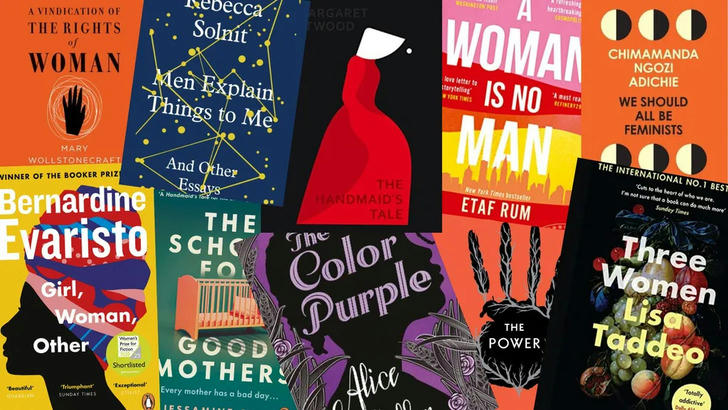Feminist Literature: Discover Your Story Through Their Words

We can belong to each other and still be independent. We don't belong to any group; we belong to ourselves. When we start telling our stories, the themes are often the same: finding ourselves, defining ourselves, and achieving happiness. However, it seems that a decade ago, these stories were mostly told by men.
The concerns and struggles of women have been ongoing for a long time. We share the same gender, we should better understand what women face, whether in the same cultural context or different ones. The confusion about family is profound, and the confusion about intimate relationships is universal.
Reading gives us the chance to become our own biographers. Dive into these six novels and find your own reflection in someone else's story.
1.The Handmaid's Tale by Margaret Atwood
"The Handmaid's Tale," a renowned work by Margaret Atwood, also adapted into a popular film, is a feminist dystopian novel set in a futuristic, imagined world. The story portrays a society where women are stripped of their fundamental rights, including economic and reproductive freedoms, under a totalitarian regime. Atwood masterfully critiques oppressive systems while weaving a suspenseful narrative.
2.The Golden Notebook by Doris Lessing
"The Golden Notebook," Doris Lessing's most famous and influential work, delves into themes of mental and societal breakdown. It follows Anna, a writer who maintains separate notebooks to document various aspects of her life, such as political experiences, personal matters, and drug use. The novel also explores themes from the sexual revolution and the women’s liberation movement, cementing its status as a classic piece of feminist literature.
3.Men Explain Things To Me by Rebecca Solnit
"Men Explain Things To Me" by Rebecca Solnit is a prime example of humorous feminist literature. Solnit addresses common communication issues between men and women, contributing to the gender debate and challenging stereotypes. With over twenty works covering feminist literature, western and indigenous history, social change, and more, Solnit's writing is essential for those interested in these topics.
4.The Bluest Eye by Toni Morrison
"The Bluest Eye" by Toni Morrison is set in Ohio and centers on a young African American girl growing up after the Great Depression. The novel explores themes of representation and identity formation, highlighting the societal challenges faced by people of color during that period.
5.Hood Feminism by Mikki Kendall
In "Hood Feminism," Mikki Kendall critiques traditional feminist literature for often addressing only white women's issues and neglecting the experiences of women of color. Through eighteen chapters, Kendall discusses the importance of equality, equity, and inclusion, tackling topics like reproductive justice, social justice, poverty, and the patriarchy.
6.Ten Women By Marcela Serrano
Award-winning Chilean author Marcela Serrano weaves a beautiful story about the universal connections between women. For nine Chilean women, life couldn’t be more different. There's a teenage computer whiz confronting her sexual identity, a middle-aged recluse who prefers her dog's company over most humans, a dedicated housekeeper, a celebrity television personality, and a woman facing the loneliness of old age.
